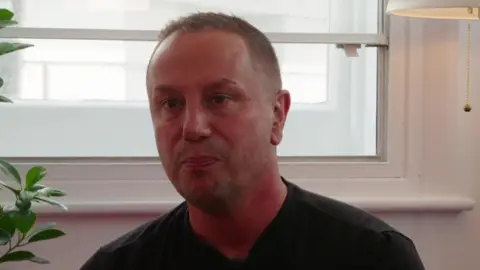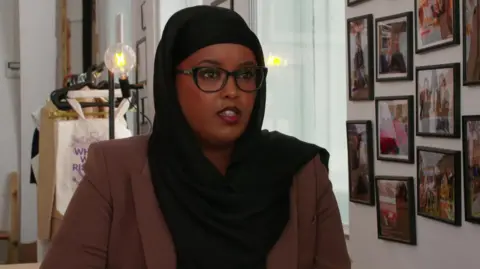Child grooming in London at 'catastrophic' levels
 BBC
BBCLevels of child grooming in London are "more catastrophic" than anywhere else in the country, a care sector activist and abuse survivor has said.
Chris Wild said grooming and criminal exploitation are rife in the capital, and it is being missed due to poor data-sharing and underfunded services.
A review by Baroness Louise Casey into child grooming gangs across England found a "mismatch" in the way the way the Metropolitan Police and local authorities record child abuse.
The force said it would improve data collection, while the Home Office said it was implementing the "the largest ever" package of measures to tackle child sexual abuse.
According to the report, the Met logged 2.77 contact child sexual abuse cases per 1,000 children, while London boroughs recorded just 1.3 child-in-need assessments for child sexual exploitation and 1.79 for child sexual abuse.
The inconsistency could suggest some cases are slipping through the cracks.
Mr Wild said he had worked in this sector for 10 years, predominantly in London.
He entered the care system in Halifax, West Yorkshire aged 11, following the death of his father and decline in his mother's mental health.
"It wasn't just any children's home, it was a children's home run by paedophiles," he said.
Mr Wild has since campaigned for reforms aimed at protecting children in the care system.
He said he had seen "children being groomed, children going missing, forced into county lines [drug gangs]".
He believes grooming gangs in London target vulnerable children for an "expansive" range of purposes, ranging from drug dealing to prostitution.
A Met Police spokesperson said "too many victims, particularly young girls, were let down" and that "policing must and will do better".
"While in London we assess that criminal exploitation, such as county lines, currently poses the most prevalent threat to children, we recognise - as the review finds - that our data must improve to give a fuller picture. We are acting on this," they added.

Warda Mohamed, founder of safeguarding charity Lasting Support, said the lack of consistent data fuelled public ignorance.
"If people knew exactly how bad it was, with all the intercity details involved, then yes, there would be more interest," she said.
Ms Mohamed added that cuts to services have left vulnerable children without regular contact with adults who can spot abuse.
Mr Wild called on politicians and public bodies to act to prevent the loss of another "generation of young people through ignorance".
A Home Office spokesperson said they "accepted all of the recommendations" in Baroness Casey's report, including protecting children and supporting victims.
"They should stop being blamed for the appalling crimes committed against them."
Listen to the best of BBC Radio London on Sounds and follow BBC London on Facebook, X and Instagram. Send your story ideas to [email protected]
